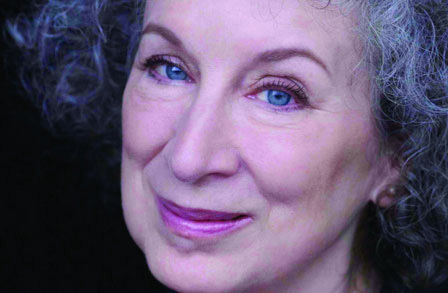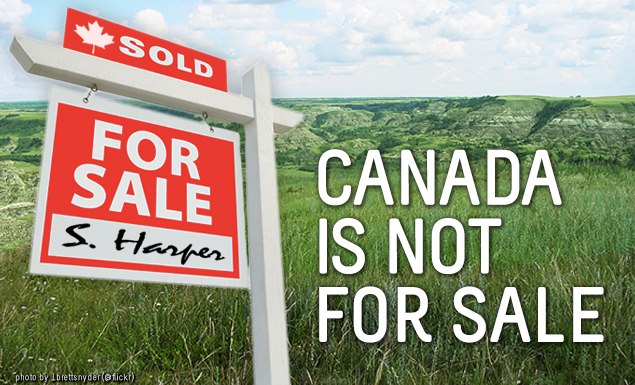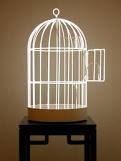Today is a very important day for my country, Canada: America will vote for a president while we partake in our favourite national pastime – watching Americans. This morning I awoke to Jian Gomeshi speaking about the election on CBC radio’s The Q. Last week I stayed up until two in the morning glued to the Canadian documentary program, The Passionate Eye’s, series, “Anger in America.” This Hour has 22 Minutes recently ran a skit in which Romney eats Big Bird for Thanksgiving Diner. And tonight,an impersonated Don Cherry, the infamous host of Hockey Night in Canada, will be only one of many Canadian T.V hosts covering the American election.
The world stares at the US election as smallcreatures stare at a boa constrictor into whose cage they’ve been dropped.
— Joyce Carol Oates (@JoyceCarolOates) November 6, 2012
Pierre Trudeau saw the U.S. as more of an elephant. He once said, “Living next to the United States is a little like sleeping with an elephant. You always wonder if they will roll over on you.” But according to a recent National Post editorial board, we don’t have much to fear: “regardless of whether [Mitt Romney] or Barack Obama is inaugurated on Jan. 20, 2013, no one is forecasting major disruptions in the U.S-Canada relationship.” I wondered why it is that Canadians care so much about what happens in America tonight, so I decided to ask my friends and fellow Canadians how they felt about this election.
I had confirmation that not only do we care, but this election is making us anxious. My friend Christal tells me, “I’m too nervous to watch. I might go to the gym to distract myself.” Diana, a host of the popular radio show Gaywire, might be coping in a different way: “I haven’t had hard liquor in 2+ years. If Romney wins tonight (or is close to winning) I will be drinking one drink after another.”
My friend Mike explained one of the reasons we’ll all be closely watching this election: “To me one of the issues that should be front and centre of every voter is climate change. Internationally, the U.S. is a key constituent in making that change possible and hope this election doesn’t move the U.S. backward.”
Taryn, a political science student at the University of Alberta, and Christal both emphasized the connection between what happens in America and what happens here. When asked if she cares about this election, Christal said, “Of course I care. U.S. politics can (and do) majorly influence Canadian politics. It’s no coincidence that Harper came into power while Bush was president.”
Taryn explained, “I have witnessed what a more (neo-)conservative politician is capable of doing here in Canada. When it comes down to it, the legality of abortion is important to me based on principle, and Obama being a more socially progressive politician does make me root for him, especially based on his attempt at introducing health care. I also know that American politics will have a great affect on Canada and the rest of the world, and having an American president like Romney will only increase the speed at which Stephen Harper is able to turn Canada into something we don’t recognize or want.”
You only need to think of the proposed Keystone XL pipeline to know that we as Canadians have a lot to lose at the hands of the Americans; but the reason The National Post is able to say that our relationship with the U.S. is safe is because, compared to Canadians of previous decades, we don’t have as much to lose. As The National Post says, “unlike in the 1980s, and even the early 1990s — there simply is no longer a serious constituency for across-the-board protectionism in the United States (or, for that matter, Canada).”
This, my dear Canadians, is because we have already sold out. The National Post makes it seem like we should be relieved; when really the lack of animosity between the Canadian government and the American one should be a cause for concern. In the 1987 anthology, If You Love this Country:Facts and Feelings on Free Trade, edited by Laurier Lapierre, Margaret Atwood writes:
Our national animal is the beaver, noted for its industry and its co-operative spirit. In medieval bestiaries it is also noted for its habit, when frightened, of biting off its own testicles and offering them to its pursuer. I hope we are not succumbing to some form of that impulse.

Today, not only does America have our oil and our water, it also has our undivided attention. When it comes to Canada, the key word in the Joyce Carol Oates tweet is dropped. We have allowed our government to drop us into this cage. While it may be easy to picture America as a big boa constrictor of a bully and see ourselves as small, victimized creatures, it seems like its varying degrees of privilege, rather than differences of citizenship, that define where we stand on these issues.
Low-income Americans don’t care that Canada has been sold for its resources. They care about having resources.
As Autostraddle’s very own Fonseca says, “My mom gets by on $1,000 USD monthly. She has to make it stretch. I don’t think she cares where her gas, plastics, etc. come from, or if they can be recycled.”
She further explained that when low-income Americans go to the polls, they’re voting for the party that promises them prosperity – the American dream. Meanwhile, North of the border, rich and poor Canadians alike support Harper because he promises the Canadian equivalent of the American dream – a strong economy otherwise known as Canada’s Economic Action Plan.
As my friend Taryn highlights, candidates haven’t spoken about things like climate change, poverty, and racism on a societal or structural level: “The current American electoral system is broken, just as the Canadian one is – we do not have candidates representing the full breadth of options in terms of what will make our societies more just, equitable and sustainable.”
This evening as we watch the winner give his victory speech, we need to ask ourselves whom exactly the victory is for: low-income Americans? Canadians? Women? And then, we need to think about putting our beaver-industriousness to good-use and gnaw our way out of the damn cage.










Comments
Thank you for so eloquently explaining how American and Canadian politics are intertwined, or at least how happenings in America make Canadian happenings happen. You write all the best things.
We can’t have 2 conservatives controlling one whole continent. We just can’t!!!
from a canadian perspective, the democrats are conservative.
Maybe along the line of what the PCs were, but Democrats are significantly to the left of Harper, at least on social issues to the extent that they can be extricated from economic ones.
mexico also shares our continent.
And the Mexican president-elect is pretty horrific…
“Having an American president like Romney will only increase the speed at which Stephen Harper is able to turn Canada into something we don’t recognize or want.” – This is what is causing me all the anxieties. (Also, of course, I want Obama to win so hopefully all you ‘Murican gay ladies can get legally married soon. I mean, not all of you. The ones who want to. You know what I mean.)
“Rich and poor Canadians alike support Harper because he promises the Canadian equivalent of the American dream.” – Except don’t forget that more than 60% of Canadians voted AGAINST him. He doesn’t have that much popular support, we just have a lousy electoral system.
This is what Malaika neglected to quote of mine while she interviewed:
“Most of our media is American-focused; a lot of what’s happening in Canadian politics is happening behind the scenes (thanks, Harper), a lot of American politics influence Canadian politics, Canadian politics is less entertaining
And also, a lot of American politics revolve around things we in Canada have already resolved, so we observe it with a sentiment of “Why the fuck is this even an issue, omg, Americans can be polarized and backwards”. Also #feelings”
I can’t imagine why my articulate brilliance wasn’t included =P
“a lot of American politics revolve around things we in Canada have already resolved.” yes. Paper, your brilliance is here now! :-P
canada’s economic action plan: raping mother earth since 2009.
I’m happy that Obama won, but now we won’t have an influx of cute gays coming up here to escape, so I don’t know how to feel (just kidding. They all would’ve moved to Vancouver or Toronto anyway, let’s be honest.)
And Montreal.Don’t forget Montreal.I think most of us can name a celesbian or 3 that have moved there.
montrealer here, and i watched the fuuuuuuuuuuuuuuuuuuuuuuuuuuuuuuuuuuuck out of this election. i generally get really into all broadcasted elections, and things looked dire the beginning of this one and i was like DO NOT AL GORE THIS ONE. i am so glad that so many (though not all) liberal ballot initiatives also passed. HOORAY obama! i hope weed legalization measures catch on quickly in Canada now, because it seems like a sizable majority would like it, but no one has actually thrown the option out there in writing.
It won’t come to canada while harper’s in power. Stupid fucking harper… *gumpy face*
*grumpy* Dammit.
yeah, not gonna lie, take a rain-check til we sort our shit out.
itll take*
all the typos.
Also as to Harper.The main reason he got into power was that when voters started watching the debates and the rallies he was much much better than Paul Martin.It would have been kinda like Barry O debating George W Bush.Not quite that bad pretty darn close.
Paul Martin,who had a very good economic record as a former finance minister was appallingling pitiful as a public speaker we were to find out.He didn’t seem to be able to even grasp what he was trying to say,a lot of mumbling and stumbling from a very bright man.
So Canadians,being more than anything pragmatic voted for perceived competence,not really economics or social issues.Also the Liberal party had just had a couple of serious political scandals.
Also Harper has become the more progessive part of his party.He is keeping the nutjobs in check.i.e the evangelicals.This has come to be a bit of a surprise as his former Reform party consisted of lots of these folks.Harper though plays the piano and sings Beatles songs and his wife rides motorcycles.I don’t buy that he’s all bad.
That said, his policies on social justice issues,social issues in general,and in particular the environment are less than stellar.
He remains in power because he also happens to a particularly shrewd politician one of the best tacticians in recent memory anywhere in the world.
My 2 cents.
Oh,and I’m really really glad that Barry won.
I was watching because I really don’t want your rights to be ignored guyz.
Trudeau x2 will save us?